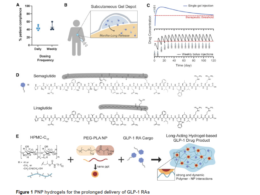The health strategist
institute, portal & consulting
for workforce health & economic prosperity
Joaquim Cardoso MSc.
Servant Leader, Chief Research & Strategy Officer (CRSO),
Editor in Chief and Senior Advisor
January 17, 2024
This executive summary is based on the article “Why Do GLP-1 Drugs Stop Working, and What to Do About It?”, published by Medscape and written by Marilynn Larkin, on January 12, 2024.
What is the message?
Glucagon-like peptide 1 (GLP-1) agonists, hailed as a significant advancement in obesity treatment, showcase impressive weight loss in clinical trials.
However, a persistent challenge emerges when individuals cease the medication, leading to weight regain. Furthermore, patients on prolonged GLP-1 treatment experience plateaus, where the body resists further weight loss, posing a complex dilemma for healthcare professionals.

ONE PAGE SUMMARY
What are the key points?
Weight Regain Phenomenon:
Studies indicate that individuals who discontinue GLP-1 drugs, whether voluntarily or due to circumstances, tend to regain the majority, if not all, of the lost weight.
Plateau Challenge:
Patients on prolonged GLP-1 therapy reach a plateau, hindering additional weight loss. This phenomenon is observed across various weight loss interventions, including drugs, surgery, and lifestyle changes.
Metabolic Factors:
The body’s resistance to further weight loss is attributed to metabolic adaptations, where the metabolism slows down with the loss of both fat and lean body mass. As a result, the body’s daily caloric requirements align with its reduced weight, leading to a plateau.
Tug of War Scenario:
A continual struggle arises between the implemented weight loss strategy and the body’s innate mechanisms to maintain a set point. Changes in hormonal balance, such as the reactivation of the hunger hormone ghrelin, contribute to the body’s resistance.
What are the key examples?
Combination Therapies: Real-world strategies involve combining multiple weight loss agents with distinct targets to overcome plateaus. For instance, adding phentermine when a patient plateaus on a GLP-1 drug.
Dose Adjustment: Tapering the GLP-1 dose and exploring alternative dosing schedules, such as every other week or monthly, can be effective in managing plateaus.
Lifestyle Emphasis: Incorporating resistance training alongside aerobic activity helps maintain lean body mass, crucial for overall metabolic health.
Behavioral Health Integration: Recognizing the psychological aspect of weight loss, ensuring access to behavioral health support is vital. Addressing underlying issues related to obesity contributes to holistic patient well-being.
What are the key strategies?
Diversified Treatment Approaches: Employing a variety of weight loss agents with different mechanisms of action to address plateaus effectively.
Individualized Dosing: Tailoring GLP-1 dosages based on the patient’s response and specific health considerations, striking a balance between efficacy and minimizing side effects.
Behavioral Health Support: Integrating behavioral health services to assist patients in navigating the psychological challenges associated with weight loss, ensuring a comprehensive approach to well-being.
Conclusion
Managing plateaus in GLP-1 drug efficacy requires a multifaceted approach, combining diversified treatment strategies, individualized dosing, emphasis on lifestyle modifications, and integration of behavioral health support.
Recognizing obesity as a chronic, multifactorial condition underscores the need for a long-term, holistic perspective, considering both physical and mental well-being.
Healthcare professionals play a pivotal role in guiding patients through the complexities of weight loss journeys, fostering healthier lives.
To read the original publication, click here.












